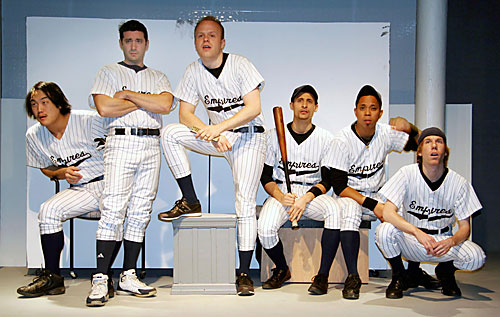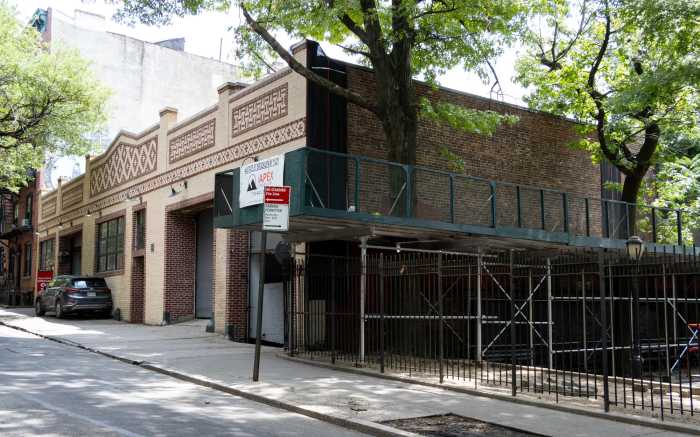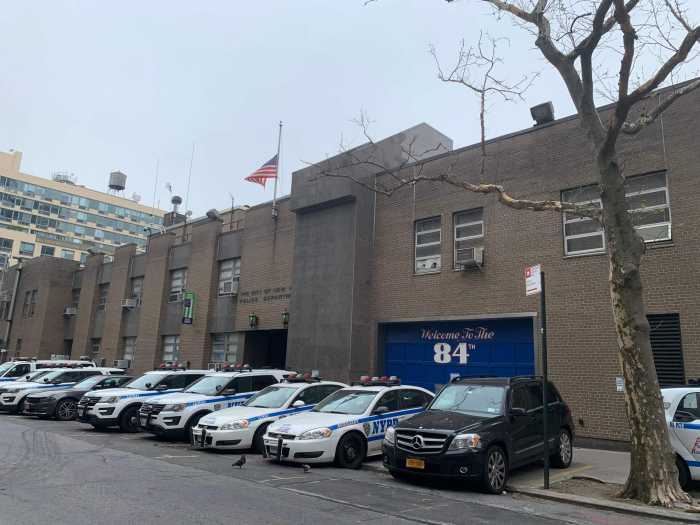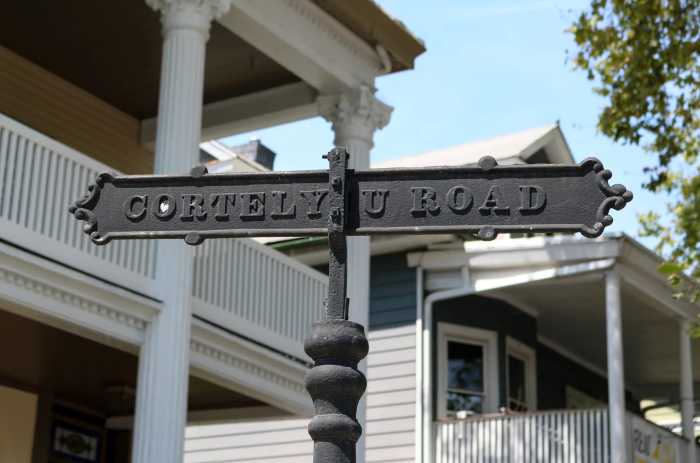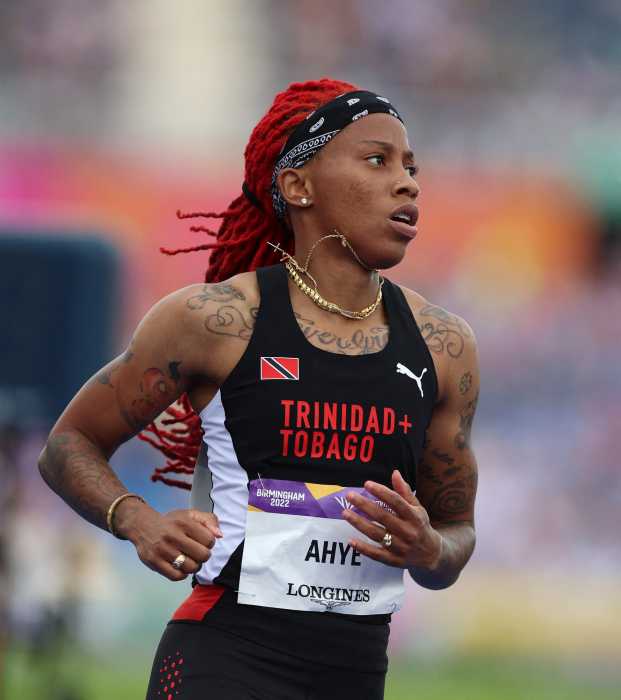When “Take Me Out” premiered in 2002, people flocked to the Public Theater in Manhattan — some with binoculars — to get a close look at the lush full-frontal male nudity.
Now, thanks to the cozy confines of the Heights Players playhouse on Willow Place, theatergoers can enjoy an even more intimate relationship to the characters in Richard Greenberg’s Tony Award-winning play about a fictional (or is it?) baseball superstar who comes out of the closet.
But don’t let all the ballpark franks distract you — this play provokes in ways beyond the simple shock of seeing eight men taking a shower on stage. It also tackles issues of homophobia and racism through the prism of baseball’s connection to American identity.
In other words, go to this baseball game for the hot dogs, but stay for the drama.
The story centers on Darren Lemming (Ugo Chukwu), a Derek Jeter-esque superstar who is admired by both his fans and teammates on the “Empires.” Chukwu credibly captures the arrogance of a slugger so successful that he cannot even imagine having his lifetime of success be derailed, even by something as significant as coming out of the closet.
Needless to say, Lemming’s revelation causes awkward moments in the locker room — hence the shower scenes — and also difficulties with the few people he calls friends.
Narrating the play is Kippy Sunderstrom (Seth Grugle), a scrappy baseball player considered one of the smartest in the big leagues. A clever conceit, Grugle is able to add entertaining commentary and perspective to moments that would normally be limited by the monosyllabic jocks who populate the baseball world.
Grugle, a newcomer to the Heights Players, occasionally addresses the audience without becoming obnoxious, and brings wholesomeness to the role appropriate for a play about the great American pastime.
As Lemming’s sexuality spoils the locker room chemistry, the Empires plunge into a mid-season slump. But when the manager calls up a flame-throwing countryboy closer from the farm, the problems really begin — both for the protagonist and the play itself.
As the ogre-ish reliever, Shane Mungitt (Craig Kelton Peterson), begins striking out hitters left and right, it quickly becomes clear that he has a tortured past filled with violence and isolation. Unfortunately, Peterson is only able to communicate this torment through one-word responses and, in the final act, an outburst of racial and homophobic slurs that left the audience uncomfortable and distracted.
Anytime a moronic character uses a southern accent and pronounces “situation” as “sich-e-ation,” the cliché alarm should be going off.
But he is not the only character who enters the realm of caricature. Nathan “Mars” Marzac (Nathan Wagner), an accountant who Lemming hires to handle his not-so-small fortune, at times strives to be so gay he becomes less of a well-rounded character than the all-too-familiar flaming comic relief.
Still, Mars — possibly the queerest money manager ever to take the stage — slowly becomes enamored with baseball, and delivers a rousing soliloquy about how baseball is the apotheosis of democracy. It’s the play’s best scene.
Perhaps the most awkward character is the Empires’ ace-pitcher Takeshi Kawabata (Doua Moua, last seen, believe it or not, in Clint Eastwood’s “Gran Torino”). Kawabata does not speak a word of English and tends to respond in samurai grunts. In one particularly ill-conceived scene, Kawabata actually emerges in a kimono befitting a Kurosawa flick. Looking like a ronin who wandered onto the pitching mound, Kawabata delivers a long, exaggerated speech entirely in Japanese while the audience laughs.
So, at points, the play’s ambition becomes a burden to director Fabio Taliercio. Nowhere is this more evident than in a poorly staged shower room rape — a critical moment in the plot that unfortunately left the audience whispering at each other, “Did that just happen?”
Similarly, any potential catharsis gleaned by the tragedy of the third act is undermined by Greenberg’s final scenes, which feel like a tacked-on “guy finally gets the guy” ending.
Still, Taliercio deserves a lot of credit for avoiding the many pratfalls of a play with so much nudity. In general, the eight penises on display do not detract from the play — in fact, judging by one actor Miguel Angel Sierra’s gifts, he must have a stunning on-base percentage, if you know what I mean.
Talierico also does an excellent job of taking advantage of every inch of the Heights Players’ stage, fitting a baseball diamond and showers into the small space.
So don’t let the adults-only material ward you off. “Take Me Out,” delivers a revealing portrayal of how a baseball team would respond to a revelation that bafflingly still has yet to occur in professional sports.

“Take Me Out” at the Heights Players [26 Willow Pl. between Joralemon and State streets in Brooklyn Heights, (718) 237-2752] will run through Jan. 24. Tickets are $20.


